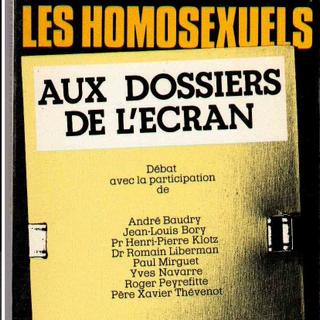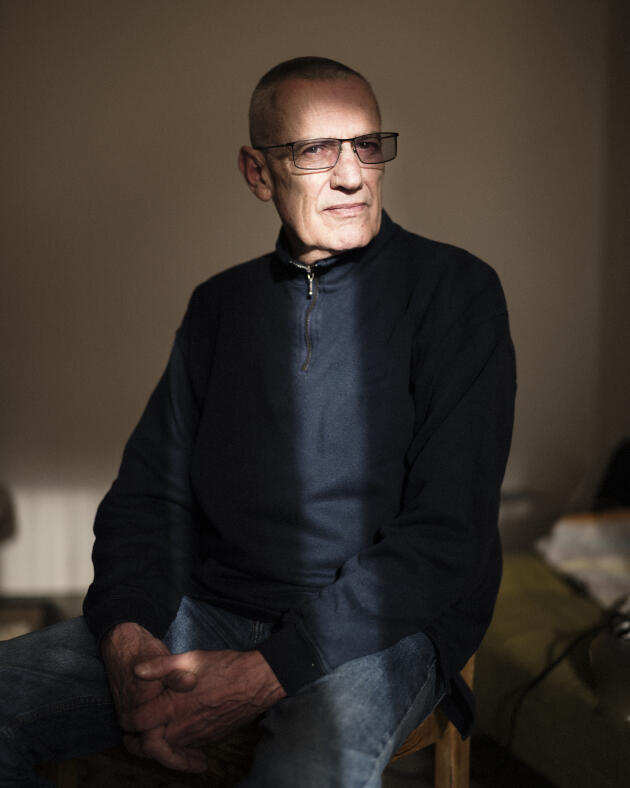


'I say I am homosexual because that is what it is': Queer experiences tackled for the first time on French TV in 1975
Long Read'The underground years' (3/5). On January 21, 1975, 19 million viewers watched the first French TV debate on LGBTQ+ issues. 'Les Dossiers de l'écran' invited authors, doctors, a priest and, against them, an MP who was convinced that queerness was an 'illness.'
Jan-Paul Pouliquen pulled the sheet up to cover his nose. Only his eyes peered out, focused on the TV set at the end of his bed. Morton Gould's slightly distressing timpani-based theme tune for the famous TV show Les Dossiers de l'écran – which featured a thematic film, followed by a debate on the themes covered therein – had just given way to its presenter Alain Jérôme's jovial voice. Every Tuesday evening, this journalist presented public channel Antenne 2's influential program – which, on January 21, 1975, featured a film based on Roger Peyrefitte's book Les Amitiés Particulières (Special Friendships, 1943), a love story between two boys, both students at a Catholic boarding school. The debate that followed was entitled: "The homosexuals." It was a strange, vague title, but for this first for French public TV, the channel was treading on thin ice: The program has already been canceled twice. "Without further ado, I would like to give the floor to our phone lines and to our viewers, who have been calling us in very large numbers," said Jérôme as soon as the film ended.

Pouliquen – the future champion of the civil union contract known as the PACS, which was voted through in 1999 by the left-wing government – was a civil servant at Paris City Hall at the time. On that day in January, he was 20 years old and lived in a single-room apartment in Paris' 15th arrondissement. He was determined not to miss a minute of the upcoming debate but feared that the young woman he had just married might notice his interest in the TV program. So, he pulled the sheet up high enough to avoid betraying the unease on his face, allowing him to watch the quartet of moral authorities called upon for the occasion: a priest, an endocrinologist, a neuropsychiatrist and a member of Parliament. The Church. The medical profession. The law. Were they there to guilt, to heal or to punish?
Between 1942 and 1982, French authorities repressed homosexuality using a discriminatory law that set a different age of sexual consent for same-sex relations (21) than for heterosexual ones (15). The law enabled police and judges to arrest and convict thousands of homosexuals, mostly men, bringing public shame on them.
Le Monde's five-part series, which was first published in French in August 2022, inspired legislation to rehabilitate the men and women convicted under the law that was abolished in 1982.
- The French men convicted for being gay: 'I'm going to tell you about my queer life'
- Stories of France's repression of homosexuality: 'Every time someone like me dies, a light goes out'
- 'I say I am homosexual because that is what it is': Queer experiences tackled for the first time on French TV in 1975
- Part 4: out December 29
- Part 5: out December 30
Facing them were three writers. The first was Roger Peyrefitte. The second, was Yves Navarre, a young novelist with a very '70s moustache, who slumped back in his armchair. Was he anxious – as he often was – or simply intimidated? The third, Jean-Louis Bory, was more flamboyant. Winner of the prestigious 1945 Goncourt Literature Prize for Mon village à l'heure allemande ("My Village in the Time of the Germans") – which he wrote at the age of 26 – he had just published Ma moitié d’orange ("My Half of the Orange"), an intimate confession in which he revealed his homosexuality. Above all, he was the boisterous critic on France Inter radio's Le Masque et la Plume literature and cinema debate show. Who could imagine, on that January evening, that Bory would commit suicide four years later, and that Navarre would do the same at the age of 53?
You have 80% of this article left to read. The rest is for subscribers only.
